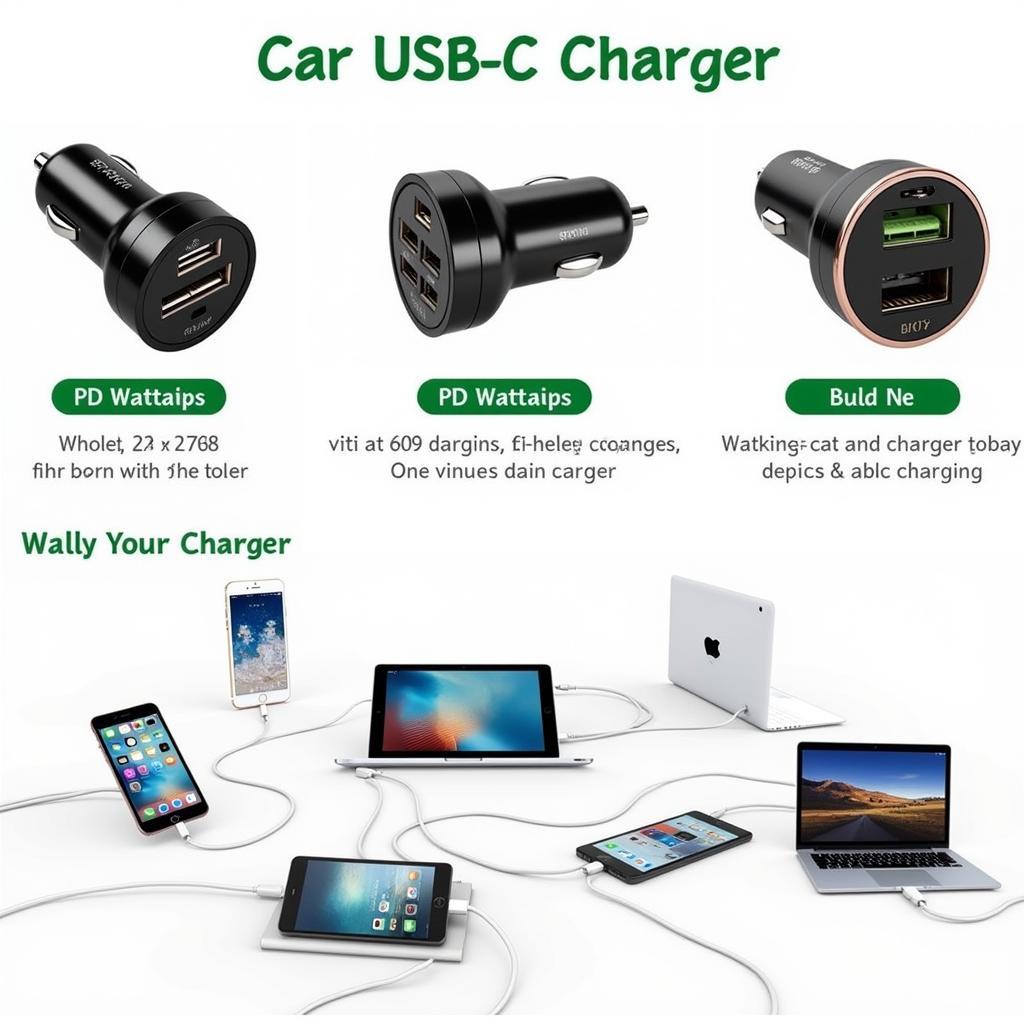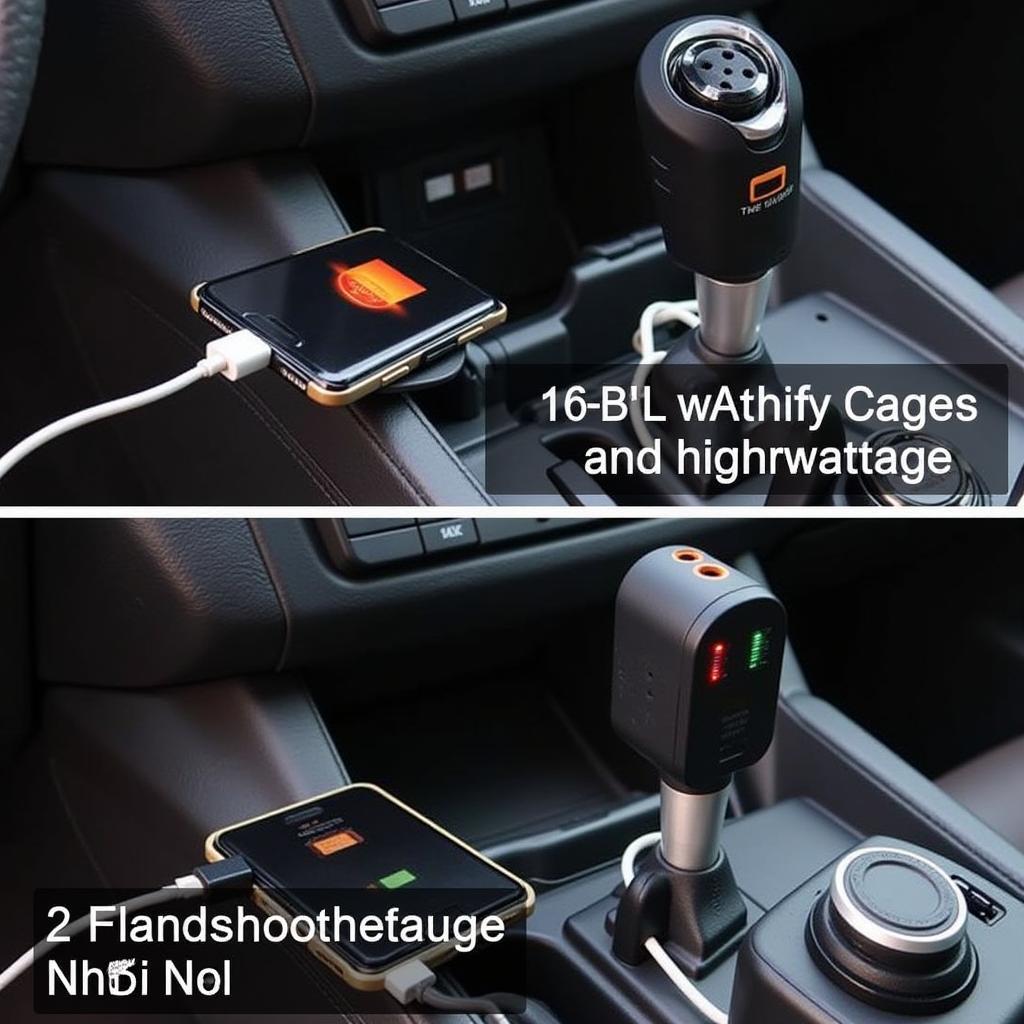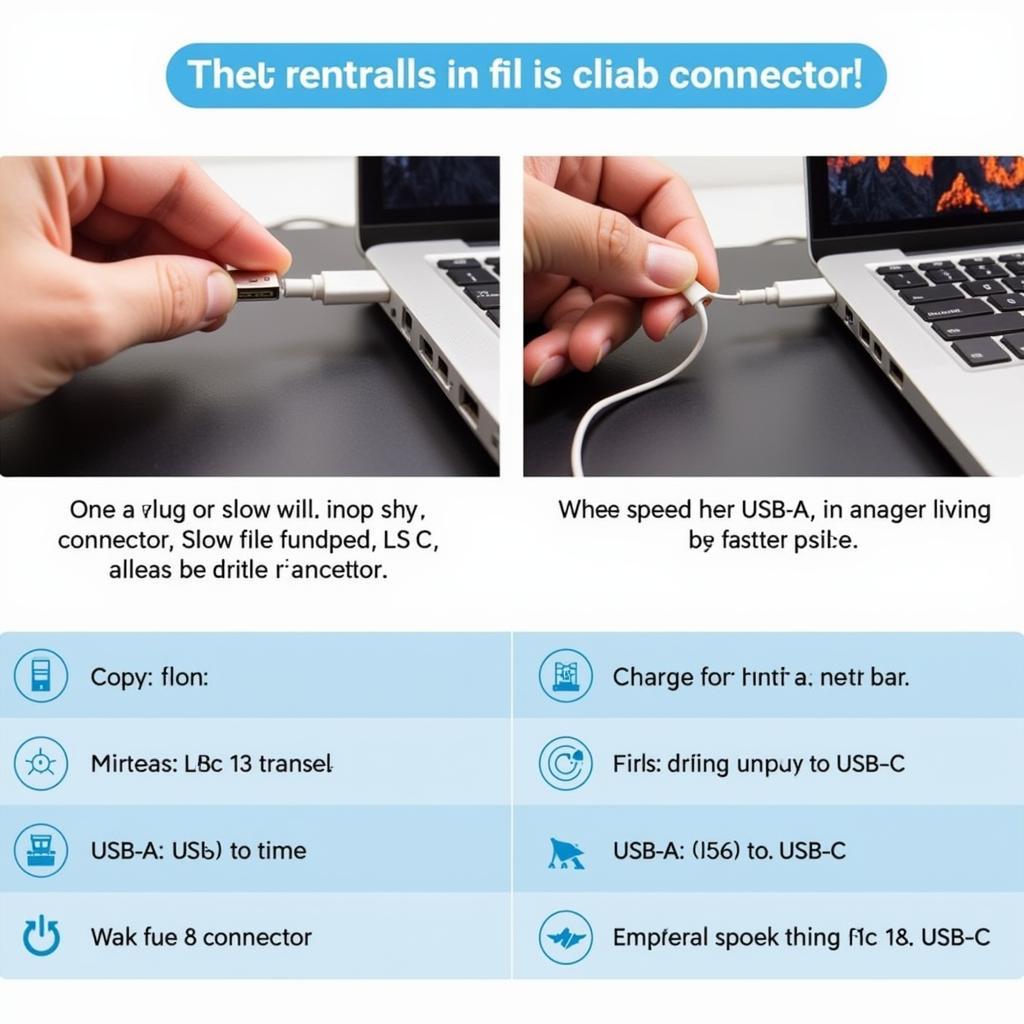Modern vehicles demand modern charging solutions. A car USB type C charger is quickly becoming a necessity, not just a luxury. Whether you’re powering a smartphone, tablet, or other device, understanding the nuances of these chargers can significantly enhance your driving experience. This guide dives deep into the world of car USB type C chargers, covering everything from choosing the right one to troubleshooting common issues.
Choosing the Right Car USB Type C Charger
The market is flooded with car USB type C chargers, making the selection process overwhelming. Key factors to consider include power delivery (PD), build quality, number of ports, and compatibility with your devices. A charger with PD capabilities can fast-charge compatible devices, drastically reducing charging time. Durability is also crucial, as car chargers are subjected to temperature fluctuations and vibrations. Consider a best car plug for optimal performance and longevity.
 Choosing the right car USB C charger involves considering power delivery, build quality, number of ports, and device compatibility.
Choosing the right car USB C charger involves considering power delivery, build quality, number of ports, and device compatibility.
Power Delivery and Fast Charging
Understanding power delivery is essential. Not all USB C chargers are created equal. Look for chargers that explicitly state their PD wattage. Higher wattage translates to faster charging, especially beneficial for power-hungry devices like laptops. However, even a lower wattage PD charger is significantly faster than a standard USB A charger.
If you need to install a new charging port, check out our guide on car charger port installation.
Compatibility and Number of Ports
Ensure your chosen charger is compatible with your devices. While most modern smartphones and tablets use USB C, checking compatibility is always recommended. Also, consider the number of ports you need. Multi-port chargers are convenient for families or road trips, allowing multiple devices to charge simultaneously.
Troubleshooting Common Car USB Type C Charger Issues
Despite the convenience, car USB C chargers can sometimes encounter problems. Here’s a look at common issues and how to fix them:
Charger Not Working
If your charger isn’t working, first check the fuse in your car’s 12V outlet. A blown fuse is a common culprit. Also, ensure the charger is properly plugged in. Sometimes, slight adjustments to the charger’s position can restore functionality.
Need a charger for your older iPhone? We have recommendations for iPhone S car charger.
Slow Charging
Slow charging can be due to several factors. Using a non-PD charger with a PD-compatible device will result in slower charging speeds. Also, a cable with insufficient current-carrying capacity can bottleneck the charging process. Try a different cable to see if that resolves the issue.
 Troubleshooting slow charging with a car USB-C charger, highlighting potential issues like cable quality and power delivery.
Troubleshooting slow charging with a car USB-C charger, highlighting potential issues like cable quality and power delivery.
Device Not Recognized
If your device isn’t recognized by the charger, try a different cable. A faulty cable can prevent proper communication between the charger and the device. Restarting your device can also sometimes resolve this issue.
Looking for a charger for your iPhone 15? Check out our recommendations for the car charger for iPhone 15.
Why Choose USB Type C for Your Car?
USB Type C offers several advantages over traditional USB A. Its reversible connector eliminates the frustration of trying to plug it in the right way. Furthermore, USB C supports faster data transfer speeds and higher power delivery, making it the ideal standard for modern devices.
“The shift to USB C is a natural progression in automotive technology,” says John Smith, Senior Automotive Electronics Engineer. “Its versatility and performance make it the perfect solution for powering and connecting devices in the car.”
Conclusion
A car USB type C charger is a must-have accessory for any modern driver. By understanding the factors discussed in this guide, you can choose the right charger for your needs and ensure a seamless charging experience on the go. Choosing the right car usb type c charger ensures your devices are always powered up.
 Benefits of using a USB Type-C car charger, showcasing reversible connector, faster data transfer, and higher power delivery.
Benefits of using a USB Type-C car charger, showcasing reversible connector, faster data transfer, and higher power delivery.
FAQs
-
What is Power Delivery (PD)?
- PD allows for faster charging speeds compared to standard USB charging.
-
Are all USB C cables the same?
- No, cables vary in their data transfer and power delivery capabilities.
-
Can I use a USB C charger with older devices?
- Yes, with a proper adapter.
-
Why is my car charger not working?
- Check the fuse, connection, and cable.
-
How do I choose the right wattage?
- Consider the power requirements of your devices.
-
What if my device isn’t charging fast enough?
- Try a PD charger and a high-quality cable.
-
Where can I find a car power adapter nearby?
- Many electronics stores and online retailers sell car power adapters.
Common Situations
- Need to charge multiple devices at once: Consider a multi-port car USB type C charger.
- Want the fastest charging possible: Choose a charger with a higher wattage PD output.
- Have an older car without USB ports: Install a new 12V outlet with USB ports.
Related Articles and Questions
- How to install a USB port in your car?
- What are the different types of car chargers available?
- Which car charger is best for my specific phone model?
Need assistance? Contact us via WhatsApp: +1(641)206-8880, Email: [email protected] or visit us at 276 Reock St, City of Orange, NJ 07050, United States. We have a 24/7 customer support team ready to help.


